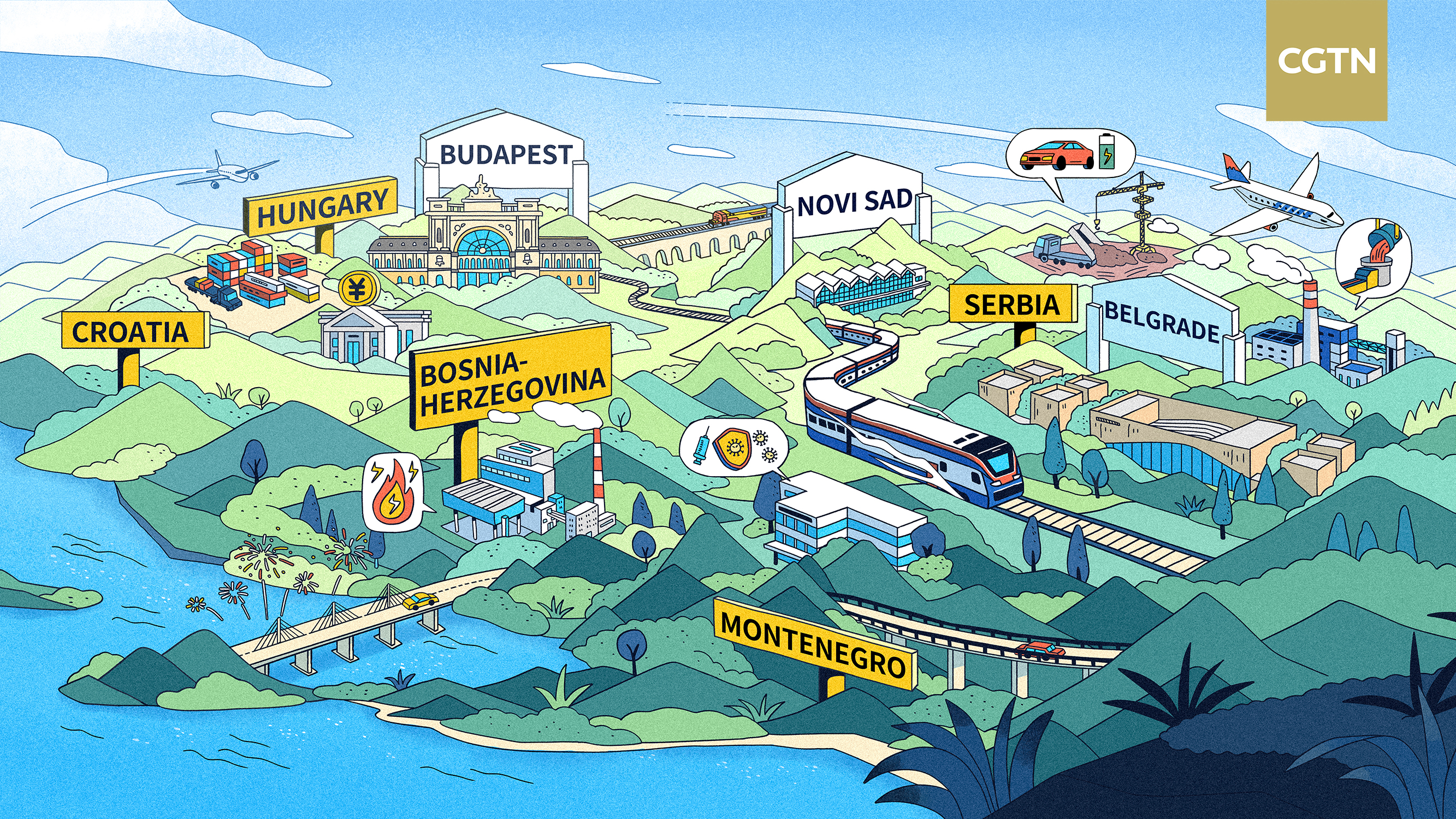

Co-financed by the EU and built by China, Peljesac Bridge is a reflection of cooperation between China and the EU under the Belt and Road Initiative, in which Chinese companies won the public tender in tough competition and followed EU standards. Croatia is now benefiting from the country's largest-ever infrastructure project.
Construction of the first Chinese vaccine factory in Europe kicked off in Belgrade. China's battery giant CATL officially launched a Hungarian plant with a total investment of 7.34 billion euros ($7.28 billion) to support Europe's green transition and electric vehicle development. It's among the five largest greenfield investments made in Europe in the last 10 years and the largest investment ever in Hungary. All these BRI projects have made a difference in people's lives.
By 2025, when the Hungary-Serbia railway project is scheduled for full operation, it will be a game changer in enhancing connectivity between the Balkan region and other parts of Europe and Asia.